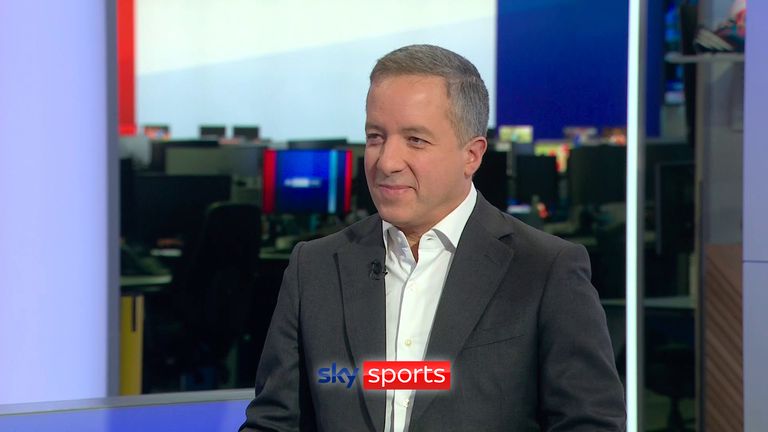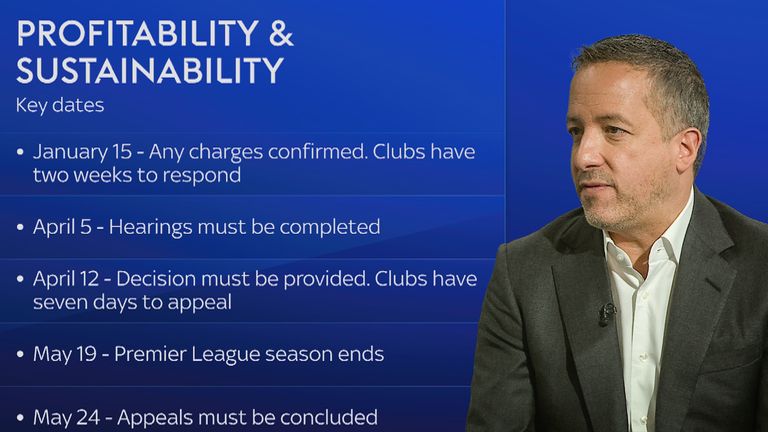[ad_1]
Premier League clubs are meeting later this week to discuss replacing Profit and Sustainability Rules with new financial fair play regulations.
The present Premier League Profit and Sustainability Rules limit clubs to losses of £105m over a three-year period.
Under new proposals being discussed the Premier League would have new rules which would instead align with UEFA’s squad cost ratio system.
In that system, UEFA limits clubs to spending 70 per cent of their revenue on squad costs – transfers, wages and agents’ fees.
Premier League clubs could adopt a similar approach which would see clubs limited to spending 85 per cent of their revenue on squad costs.
What would new rules mean for your club?
Sky Sports News chief reporter Kaveh Solhekol:
Under UEFA’s rules, if your turnover is £500m per year, you would be allowed to spend 70 per cent of that – £350m per year – on player costs.
It’s interesting because if you’re one of the bigger clubs with a big turnover, you’ll be able to spend a lot more money on players and transfers than some of the smaller clubs.
So every weekend, we’re going to see games between clubs who have spent £500m on players against clubs who have spent only £150m.
We have that situation already because we have clubs who spend more on players and wages than some of the so-called smaller clubs.
Critics will say this stops someone like a Roman Abramovich coming into Luton and saying ‘I’m going to turbo-charge Luton and turn them into Man City or Chelsea by spending lots of money on players and wages’. That simply won’t be allowed because if you’re the new owner of Luton, you’ll have to stick to this limit.
It is going to be controversial, but I don’t think it’ll be decided this week. It’s going to be discussed at this meeting but there won’t be a vote during the two-day meeting, which starts on Thursday, but it’s definitely a direction we’re travelling in.
Clubs who already play in Europe abide by these rules anyway because they’re UEFA rules, so it makes sense for the Premier League to mirror that.
All Premier League clubs have a say and there will be a range of views. Fourteen Premier League clubs will have to vote for it to be carried.
PSR explained: What limits clubs spending more?
In the simplest terms, when every Premier League team tots up their annual accounts, they can have made a loss no greater than £105m across the previous three seasons.
Clubs can only lose £15m of their own money across those three years. So that’s no more than £15m extra on outgoings like transfer fees, player wages and, in a lot of clubs’ cases, paying off former managers compared to their income from TV payments, season tickets, selling players and so on.
The other £90m of any £105m must be guaranteed by their owners buying up shares, known as ‘secure funding’, and essentially means bankrolling the club.
[ad_2]
Source link


